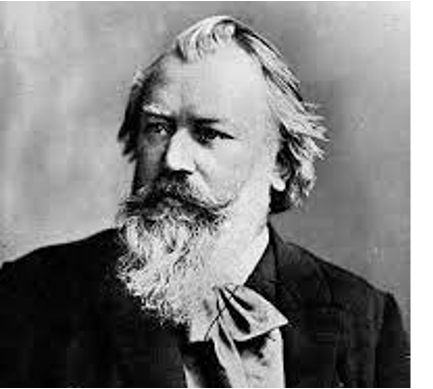


German composer and pianist, being most famous for his symphonies and sonatas, his music having some sorrow and darkness and being of great emotional depth. He was considered a conservative romantic composer compared to his contemporaries Liszt and Wagner, who had adopted a more radical approach in classical music. Many people consider him the successor of Beethoven, however, for a long time he did not want to write symphonies because he was afraid that he could not compete Beethoven.
He was introduced early to music and by the time he was a teenager, he was already an established musician working on his own to financially support his family. He began composing very young, although his compositions were not acclaimed before the age of 20. He became widely known with his largest choral work "German Requiem", which was premiered when he was 35.
When Brahms was 18, he was introduced to gypsy music through the Hungarian violinist Eduard Remeney with whom he toured as an accompanist, playing piano for him. It is this music that inspired him to compose the very famous "Hungarian Dances" ("Hungarian Dance No 5" being the most well known).
In his 20s, he met Robert Schumann and the two men developed mutual respect and a strong friendship. When Robert Schumann fell ill with a nervous breakdown, Brahms assisted Robert's wife, the pianist Clara Schumann, to manage the family affairs, also providing mental support to the whole family. According to Brahms' letters to Clara, he had fallen deeply in love with her, despite their age difference (she was 14 years older than him) but his feelings were in intense conflict with his respect for his mentor, Robert Schumann. It is still unclear today what kind of relationship they had, as they both destroyed most of their letters.
Brahms never married, possibly due to his lifelong feelings for Clara Schumann but he also had a number of infatuations with young singers, followed by unsuccessful marriage proposals.
Brahms was a secretive person, his psychological world remains a mystery even to people who knew him. He also had a double sided personality: while he was loyal and supportive to his friends, he was also distant and did not accept limitations to his freedom.
Brahms had an important role in the history of music recording: in 1889, after being approached by a representative of the American inventor, Thomas Edison, with the aim of making the first sound recording of music, he played the first "Hungarian Dance" which was recorded, although the quality was very low. This is the first recording ever of a major composer, although there is some debate as to whether the recorded introduction to the music is Brahms speaking. A "de-noised" version was performed at Stanford University.